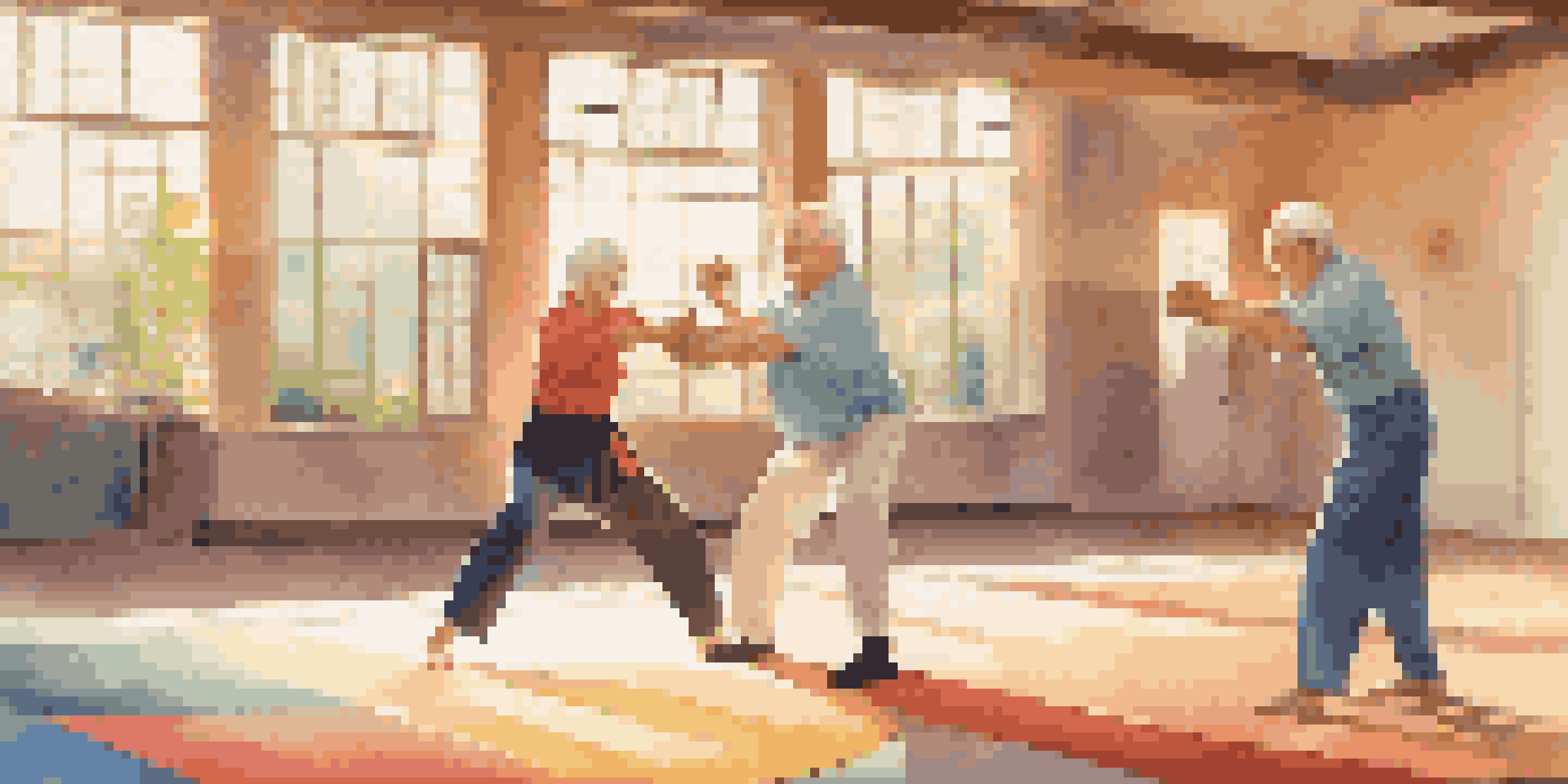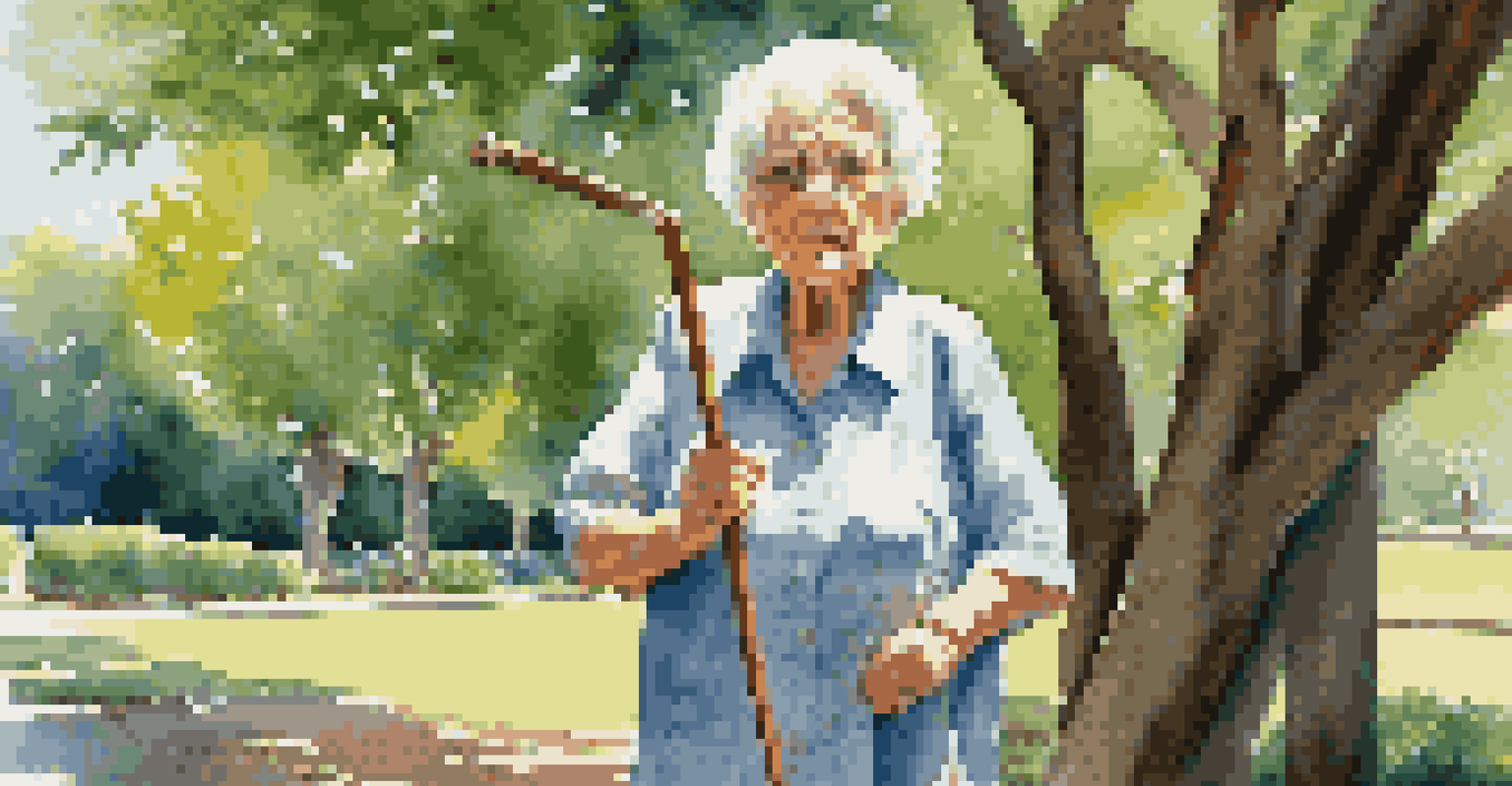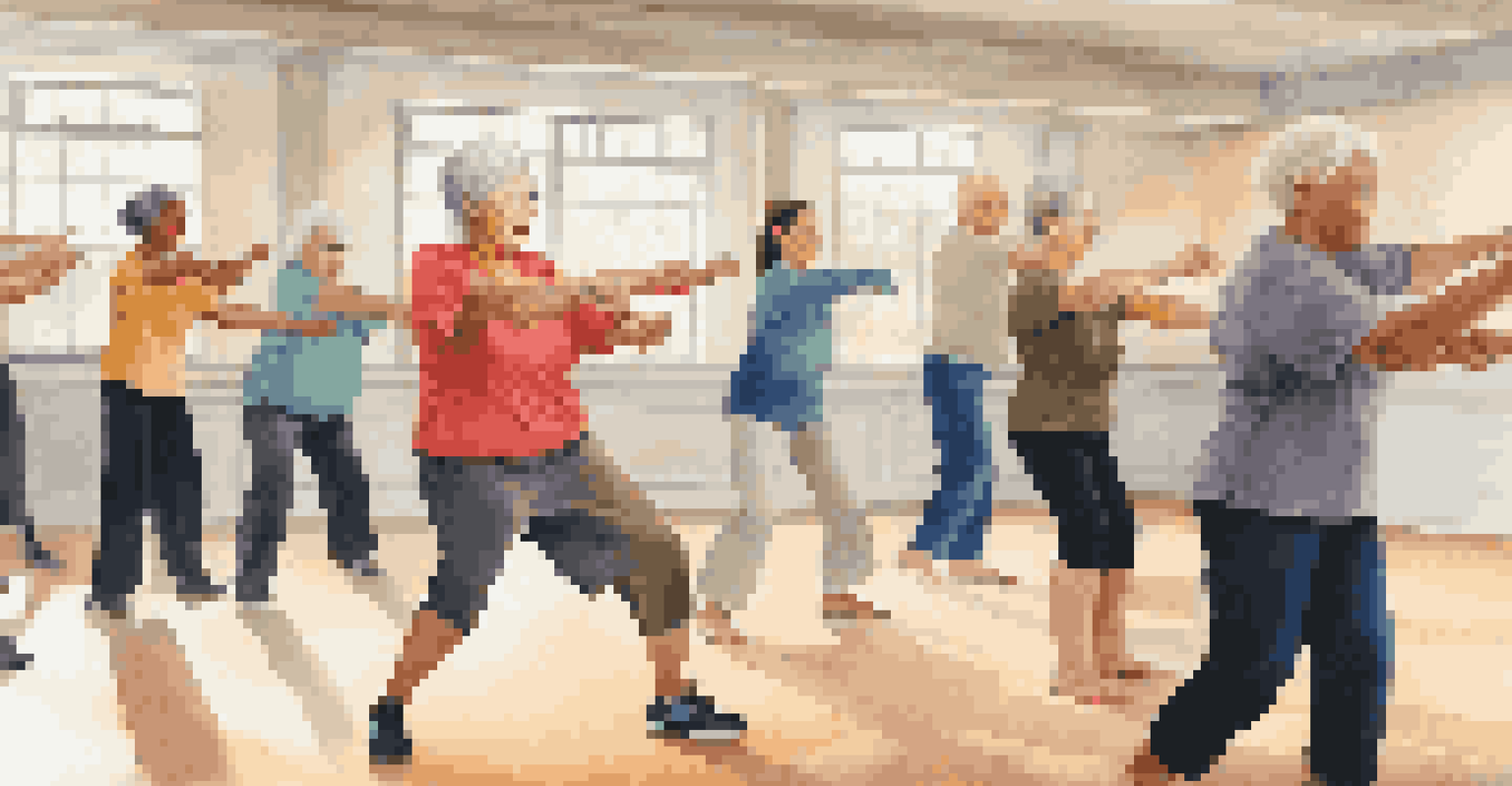Self-Defense for Seniors: Techniques to Stay Safe

Understanding the Importance of Self-Defense for Seniors
Self-defense isn't just for the young; it's crucial for seniors too. As we age, our physical capabilities may change, making us more vulnerable in certain situations. Knowing how to protect oneself can not only enhance safety but also boost confidence and independence.
The best way to predict the future is to create it.
Many seniors may feel hesitant about self-defense, thinking it's too late to learn. However, it's never too late to acquire skills that could one day make a difference. Embracing self-defense can empower seniors to feel more secure in their daily activities.
Moreover, understanding self-defense can foster a sense of community among seniors. Classes and workshops provide opportunities to meet others with similar interests, promoting both physical and social well-being.
Basic Self-Defense Techniques Anyone Can Learn
Seniors can benefit from simple techniques that require minimal physical strength. For instance, learning to use one's voice effectively can be a powerful tool. Yelling or making a scene can deter potential threats and draw attention from bystanders.

Another fundamental technique is using your environment to your advantage. For example, if you're ever in a tight situation, knowing how to use everyday items—like a cane or umbrella—can help create distance between you and a potential aggressor.
Self-Defense Empowers Seniors
Learning self-defense enhances seniors' safety, confidence, and independence in their daily lives.
Lastly, practicing basic movements such as stepping to the side or pivoting can help seniors evade an attack. These techniques are not only effective but also easy to incorporate into daily life, enhancing overall awareness and safety.
The Role of Awareness in Personal Safety
Awareness is the first line of defense. Being mindful of your surroundings can help you identify potential risks before they escalate. For seniors, this means staying alert in crowded places or when walking alone.
Self-defense is not just a set of techniques; it's a state of mind. It's a mindset that empowers you to be aware and prepared.
Practicing situational awareness involves noticing the people around you and understanding the context of your environment. For example, if a person seems overly interested in your belongings, it might be a good idea to change your route or seek help.
Additionally, creating a safety plan can enhance your preparedness. This could include knowing the locations of emergency services or having a buddy system where friends or family check in on each other regularly.
Physical Fitness: A Foundation for Self-Defense
Maintaining physical fitness is essential for effective self-defense. Regular exercise can improve strength, flexibility, and balance, which are vital for executing self-defense techniques. Activities like yoga or tai chi are excellent for enhancing these attributes.
Moreover, engaging in strength training can increase muscle mass and bone density, helping to prevent injuries. Even light resistance exercises can make a significant difference in overall physical health and self-defense capabilities.
Awareness is Key to Safety
Being mindful of surroundings helps seniors identify potential risks and take proactive measures.
Incorporating physical fitness into your routine not only prepares you for potential threats but also enhances your quality of life. Feeling physically strong can provide the confidence needed to navigate the world more safely.
Choosing the Right Self-Defense Class
When selecting a self-defense class, consider your personal comfort level and physical abilities. Many gyms and community centers offer classes specifically designed for seniors, focusing on techniques that are practical and safe.
Look for instructors who understand the unique needs of older adults and can adapt techniques accordingly. A good class will provide a supportive environment where you can learn at your own pace without feeling pressured.
Additionally, consider classes that incorporate both physical techniques and awareness strategies. This holistic approach can enhance your skills and provide a well-rounded understanding of personal safety.
Practicing Self-Defense with Friends and Family
Practicing self-defense techniques with friends or family can make the learning process enjoyable and effective. Role-playing different scenarios not only reinforces skills but also builds confidence in a supportive environment.
Engaging loved ones in your self-defense journey can also raise awareness about the importance of safety. Sharing knowledge fosters a sense of community and encourages everyone to prioritize their personal security.
Physical Fitness Supports Defense
Maintaining physical fitness is essential for executing self-defense techniques effectively.
Moreover, practicing together allows for constructive feedback. Friends and family can help you refine your techniques, making the learning experience more interactive and fun.
Building a Support Network for Safety
Creating a support network is crucial for seniors seeking to enhance their safety. This network can include neighbors, friends, and family members who look out for each other. Regular check-ins can help everyone feel more secure.
Consider forming a community group focused on safety education and awareness. Such groups can host workshops, share resources, and provide a platform for discussing safety concerns and strategies.

Additionally, utilizing technology can enhance this support network. Apps that allow for quick communication or emergency alerts can be beneficial, ensuring that help is always just a click away.